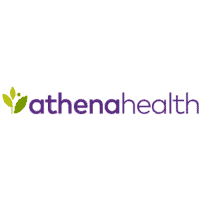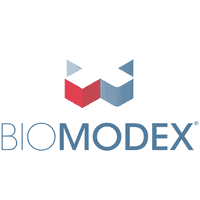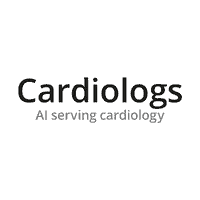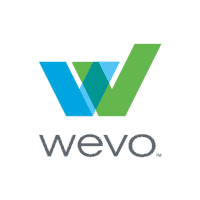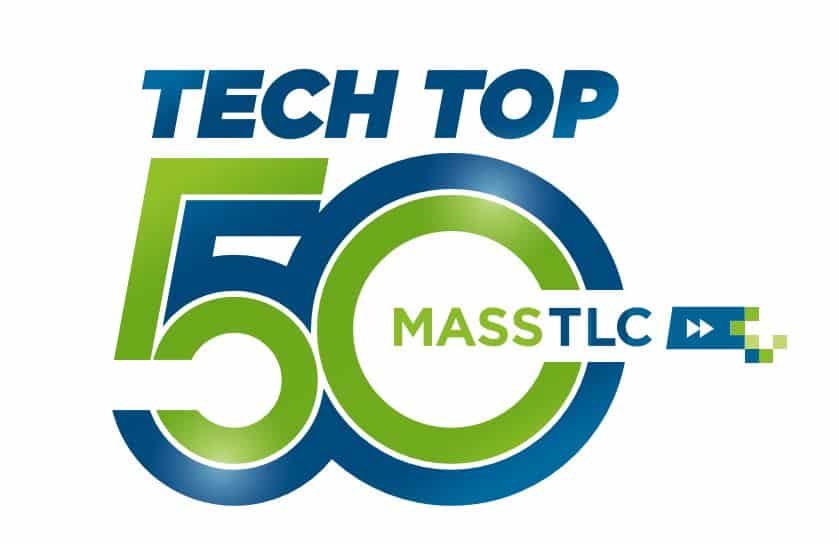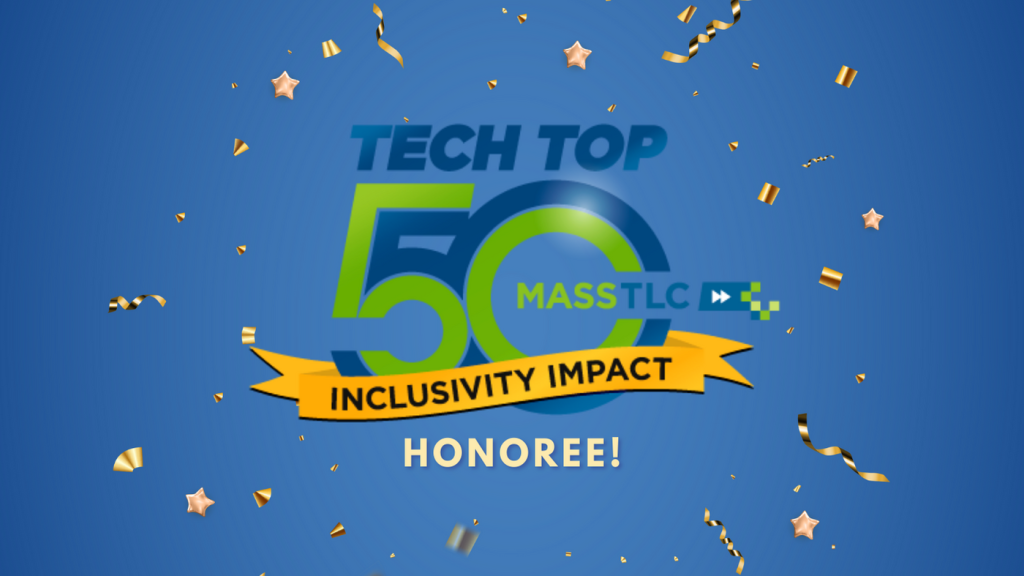The year 2020 has without a doubt been exceptionally unusual, but at MassTLC we have been heartened to see how, in spite of the challenges, our community members have stepped up to support their employees, their customers, their partners, other companies, and the broader community. We have been so impressed that we just couldn’t let the year end without recognizing the companies, individuals, and transformations that have made a positive impact during these trying times.
For that reason, we are pleased to recognize the Tech Top 50. The Tech Top 50 celebrates those that have truly made an impact in 2020 across five categories: Business Accomplishment, Community Impact, Company Culture, COVID-19 Response, and Innovation.
Read on to be inspired!
In the words of their nominators, meet the 2020 “Tech Top 50: Innovation” honorees.
This category recognizes innovation at the product, process, company and sector level. Examples include innovative product solutions to meet the challenges of our times, business model innovations, and industry level transformation. Examples include new business processes or products to meet new realities, company redirections, digital transformation in healthcare, education, financial services, eldercare, etc.
___
|
1upHealth is a Boston-based health-tech company founded in 2017, stemming from work in the FHIR Argonaut project with Aneesh Chopra (first CTO of US) and incubated at Boston Children’s Hospital Innovation Lab. The company’s platform for patients, providers, and app developers enables easy access, aggregation, and sharing of healthcare data, as well as wearable device metrics. Its focus is to bridge the gap between patient-centered data and providers’ needs by using patient-generated data (with patient-authorized access) to enable applications to improve healthcare outcomes and reduce costs. 1upHealth’s API platform is built entirely on FHIR (Fast Healthcare Interoperability Resources), which is now a mandated standard under the ONC’s 21st Century Cures Act Final Rule. This rule requires health insurance companies to make their claims and clinical data available as FHIR’s APIs to 3rd-party applications directly via patient authorization. This is one of the most significant regulations affecting health plans in the last decade and is an essential standard for making health systems health information exchange and data interoperability less disparate. 1upHealth jumped early on FHIR regulations and quickly established themselves as a leader in the interoperability space, so health systems could make it easier for patients and providers to access, aggregate and share EHR data. 1upHealth constantly on the lookout for the “next new thing” in order to allow other health systems and developers to innovate quicker. For organizations using their API platform to power their products, the company offers a solution to barriers that hinder innovation by providing a more interoperable platform which will reduce time delays and reduce costs. By data being more accessible to all, patients not only can have control over the access and sharing of their electronic health records (EHR), but they can have greater control over their own health. |
|
In the last three decades, diabetes incidence has more than tripled. Meanwhile, techniques for controlling glucose levels in hospitalized patients have remained unchanged, relying on a nurse to perform a repeating cycle of imprecise, labor-intensive, error-prone tasks. High glucose levels prevent healing, increase complications, and lengthen hospital stays, driving up care costs. Low glucose levels risk seizures, coma, and even death. Precision is necessary for high-quality outcomes. Repeatability at scale is needed for cost control. Admetsys’ PrecisionOne system functions as a metabolic autopilot, providing automated glucose regulation and real-time analysis of blood chemistry values for critical care patients. The majority of these patients experience hyperglycemia and metabolic instability caused by their acute condition and exacerbated by preexisting conditions such as diabetes. This increases mortality, morbidity, length of stay, and cost of care. To date, no automated glucose regulation tools have been available in the hospital. COVID-19 dramatically illuminates the clinical need addressed by the PrecisionOne system. Among hospitalized COVID patients, hyperglycemia increases mortality 4-fold in diabetic populations and 7-fold in non-diabetic populations. Moreover, because the current standard of care requires close-contact workflow, efforts to better regulate patient glucose levels expose medical professionals to additional contagion and infection risk. Care automation, such as that by the PrecisionOne system, enables hospitals to provide safer, more effective care that can scale to meet peak demand, with less manual intervention by clinicians. This is a key element of COVID-19 response, and a fundamental factor in hospital preparedness for future public health needs. |
|
The COVID-19 pandemic forced the world and the healthcare industry to grind to a halt. In response, athenahealth built and launched a fully EHR-integrated telehealth solution to enable practitioners to easily conduct telemedicine visits that comply with HIPAA in just 8 weeks. Because patients needed to stay at home unless their symptoms or circumstances were life-threatening, a great number of people missed critical care appointments, posing potentially devastating challenges to their health and the healthcare system. To make telehealth even more accessible and widely adopted, many insurance providers began reimbursing telehealth visits at the same rate as in-person visits. While historically athenahealth has relied on its Marketplace partners to provide telehealth solutions to clients, due to the heightened demand for connected health platforms, athenahealth developed athenaTelehealth, a permanent, tightly integrated solution capable of supporting HIPAA requirements, to allow customers to deeply engage patients and deliver needed care. Importantly, they launched the solution as a no-cost service. athenaTelehealth embeds video conferencing right in the electronic health record (EHR), allowing providers to complete a full telehealth visit within the clinical encounter without disruption to their normal workflow or focus on the patient, so that they can move between appointments quickly and efficiently. Scheduling a telehealth visit drives all downstream workflows automatically, and integration with athenahealth’s revenue cycle services allows for a seamless billing process. Users can simply access their telehealth consultations from any computer or mobile device with a modern web browser and integrated camera- no additional software or integration is required. The solution delivers telehealth instructions and a seamless patient experience. Plus, up to four individuals can join an athenaTelehealth visit so that additional care team and family members or caretakers can also participate, a capability that previously wasn’t possible if these team members were distantly located or if Covid-19 protocols restricted their in-person attendance. Research from athenahealth’s nationwide dataset suggests that telehealth played a significant role in continuity of care during the pandemic, with approximately 25% of diagnoses for common chronic conditions like diabetes and hypertension and around 35% of anxiety or depression diagnoses made virtually in the first few months of the pandemic. athenaTelehealth is providing a critical advantage as it allows patients to access high-quality, sustainable care from their physicians. It has also allowed practices across America to become more efficient, more stable, and stronger contributors to a healthy economy. |
|
AutoGuide Mobile Robots designs, develops and manufactures high-payload industrial autonomous mobile robots (AMRs) for assembly, manufacturing, warehousing and distribution operations across multiple industries. AutoGuide’s MAX-N System offers the industry’s most flexible, efficient, natural feature navigation AMRs with a growing number of high-payload adapters including tuggers, pallet stackers, and high bay forklifts. From the modular base AMR, to an array of load handling adapters, to the fleet control software that makes it all work — the entire system is created by AutoGuide. This ensures that every part of the solution has been built from the ground up to work together as a complete system. By developing the entire technology stack, AutoGuide provides an industry leading 18-24 month return on investment. Our modular system uses the same base AMR for all applications, so the AutoGuide forklift you’re using today can be turned into to a heavy payload tugger by simply affixing a tugger adapter. AutoGuide SurePath fleet control software orchestrates the movement of a full fleet of autonomous mobile robots. Once the material movement tasks that need to be automated have been identified and a network of approved travel paths through your facility have been defined, SurePath takes over to manage day-to-day operations, constantly calculating and directing traffic to drive optimum efficiency. SurePath software connects to order management systems, creates jobs for all pick and delivery activities, and develops an AMR dispatch plan based on order priorities. Traffic management features calculate the most efficient travel path for each job. If obstacles pop up along the journey, new routes are dynamically defined. With AutoGuide Mobile Robots, autonomous high payload material movement is a reality. Increase throughput, enhance operational efficiency and improve warehouse safety. |
|
BIOMODEX is a digital health company that has developed an innovative solution for advanced physician training and patient-specific rehearsal. Using an advanced-material 3D-printing process that integrates biomechanics, imaging properties, and fluid dynamics, the company creates precise anatomy models or replicas that give physicians the same feel haptic feedback and visual properties as the real patient. Going beyond 3D printing, BIOMODEX offers a sophisticated and tailored end-to-end complete physician experience in the tradition of a full motion flight simulator. Starting from standard patient-specific medical imaging, BIOMODEX creates customized 3D-printed training models, or “anatomical twins.” The company’s proprietary Invivotech® technology is used to simulate the biomechanics of a patient’s anatomy, providing the same feel and texture, and a tactile (haptic) feedback that is more realistic than other models made of a single material such as silicone. The 3D models are inserted into a station which includes a flow system and simulated blood (BloodSim®) to replicate blood flow, and fluoroscopic imaging, as well as tissue echogenicity (Echotech®) further augment the realism and creating a five-dimensional tool that physicians can use for planning or to gain experience. BIOMODEX has successfully developed and commercialized several solutions for neurovascular (BIOMODEX® EVIAS) and structural heart (BIOMODEX® LAACS) applications, including unruptured aneurysm, transseptal puncture training, LAA closure, and mitral valve replacement, and is fast expanding its product portfolio through the application of its core technologies to additional endovascular and surgical indications. Physicians order a training or custom 3D-printed model based on their patient’s unique imaging scan, such as a CTA scan. Once they receive the 3D model, they can train for or rehearse a complex procedure in a cath lab setting using the lightweight, portable station. In addition to boosting treating physicians’ preparedness and confidence, the solution is expected to reduce procedural medical errors, procedural and hospitalization costs and improve acute and chronic outcomes. Despite technological advances that have brought the best diagnostic tools, advanced treatments, and cutting-edge equipment in medicine, surgical errors still pose a serious issue in healthcare. In the United States alone, medical errors are the third leading cause of death, affecting 400,000 patients annually and resulting in 100,000 annual deaths. At least 4,000 surgical errors occur each year. |
|
Cardiologs is a diagnostic AI company that developed a cloud-based, medical-grade platform for analyzing electrocardiogram (ECG) recordings. The technology leverages advanced deep-learning algorithms to quickly detect heart conditions with superior accuracy and specificity, enabling faster and more efficient diagnosis for patients. Today this AI model, which has been trained on more than 200,000 ECG recordings, is capable of spotting at least 100 different cardiac abnormalities, and is CE-marked and FDA-cleared for all clinically-relevant arrhythmias. Even amidst the COVID-19 pandemic, cardiovascular diseases remain the number one cause of death globally. What’s more, studies confirm cardiovascular disease may double a patient’s risk of dying from COVID-19. In this context, Cardiologs’ unprecedented ability to quickly detect and expertly diagnose heart conditions has significant life-saving implications. With the Cardiologs platform, healthcare professionals across the globe can reliably screen patients for cardiovascular disease, even when using remote monitoring devices, and leverage the AI to support decision-making throughout the healthcare ecosystem. The Cardiologs’ platform is able to analyze digital ECG data from any type of heart monitor, which could include a smartwatch, wearable, implantable or even medical-grade 12-lead ECG test. Within minutes, Cardiologs’ deep learning model analyzes the data to accurately identify heart rhythm disorders in patients as effectively as the world’s top human cardiologists. The stakeholders involved in the diagnostic pathway are connected through the Cardiologs hub platform, which is accessible on the cloud, and thus can be accessed at any time, from any computer, and to any user simultaneously. The platform’s interface allows providers to easily navigate ECG tracings and visualize arrhythmias. It highlights AI-detected abnormalities and walks clinicians through a structured analysis of findings. Clinicians can confirm these findings and add them to the final report as needed. Cardiologs’ goal is to make AI readily available and usable, so that the industry as a whole becomes more predictive. This shift will enable clinicians to get ahead of health issues before they lead to serious Events. |
|
Agriculture, often seen as a major contributor to climate change, has the potential to play a critical role as a climate solution and deliver greater benefits to both people and the planet. Recognizing this potential, Indigo is committed to ensuring farmers are equipped with the tools and solutions they need to improve the economic and environmental resiliency of their operations – from identifying opportunities to boost profitability to providing innovative digital and microbial technologies and supporting the transition to more beneficial farm management practices. Starting in 2019 and through the 2020 growing season, Indigo partnered with Anheuser-Busch, the country’s leading brewer, to demonstrate the potential positive impact of this systems-based approach. Partnering with 29 rice growers across Arkansas, the inaugural program leveraged Indigo’s system of digital and data-driven solutions – from microbial products and agronomic support to transaction on Indigo Marketplace and delivery of grain through Indigo Transport – to produce sustainably-grown rice for their beer. This partnership was the first of-its-kind to offer growers end-to-end support for the commercial production of sustainable rice. Indigo originally committed to delivering 2.2 million bushels of Indigo Rice to Anheuser-Busch that is grown with specific environmental attributes. The initial goal was to produce rice grown with 10 percent less nitrogen, 10 percent less water, and emitting 10 percent less greenhouse gases. The final results, announced earlier this year, exceeded these expectations, achieving an average decrease of 23.7 percent water use compared to historical county averages, totaling over 2 billion gallons of water saved. That’s enough to supply the city of Jonesboro, Arkansas, where Anheuser-Busch’s rice mill is based, for one year. Results also included an average reduction of 13.3 percent in nitrogen application, or nearly 250,000 pounds, the equivalent of ten tractor trailers, and an average reduction of 26.6 percent in emissions of methane. Growers who participated in this partnership earned up to $27 per acre in improvement in profitability. Due to the success of the inaugural partnership, Anheuser-Busch has renewed and expanded its commitment for the 2021 growing season. Indigo’s pilot with Anheuser-Busch was a critical milestone in demonstrating the viability of a more beneficial agriculture system and the potential for positive impact that digital technologies and scientific innovation in agriculture present. With rising demand for a sustainable and transparent food system, the partnership demonstrates that this work can be achieved at scale. |
|
There is no question the COVID-19 pandemic will fundamentally change how people work. Teams that once relied heavily on in-person collaboration have had to operate for almost a year in an entirely digital environment. What has become extremely evident is that the reliability of technology is essential to employee productivity and companies’ success. During the critical transition of forced remote work, Nexthink has helped more than a thousand customers and nearly 10 million employees navigate the challenges remote working has introduced. Nexthink’s technology gives IT leaders unprecedented insight into employees’ daily experiences of technology at the device level, empowering IT to progress from reactive problem solving to proactive optimization. Rather than waiting for employees to report issues, IT teams equipped with Nexthink can catch problems before they impact users’ productivity. This is critical because recent research found that employees only report half of workplace technology issues they experience to IT, meaning enterprises do not have full visibility of the problems that exist. This becomes even more of an issue when people are working at home. For a company with 10,000 employees, downtime due to IT issues could equate to nearly half a million dollars per week and $25 million per year in lost revenue and productivity. That’s where Nexthink helps – by providing technology that gives IT the ability to identify problems where they previously lacked visibility to help bridge the Digital Employee Experience (DEX) gap. In June, Nexthink launched the next generation of its cloud native platform: Nexthink Experience. As a cloud based service, Nexthink Experience is the world’s first Digital Employee Experience Management platform to combine real-time analytics, employee feedback and automated remediation. Central to the platform is Experience Optimization, a set of capabilities that provide clear, prioritized guidance on how IT teams can improve and optimize employee experiences across an organization. IT professionals can see what issues need to be addressed first, understand the likely causes, and remediate problems quickly and effectively. Given the current working environment, providing a better digital experience to employees has never been more critical. According to research conducted in May 2020 by Vanson Bourne, 78% of IT leaders report it’s a top priority on their agenda – up 30% from one year ago. Nexthink Experience is built to help deliver on this priority by enabling IT teams to provide a better experience to employees regardless of where they are working. |
|
Voatz is a mobile elections platform that allows disenfranchised groups access to voting, including overseas citizens, deployed military, and people living with disabilities. It’s the only platform designed to meet the four criteria required for mobile voting: security, identity confirmation, accessibility, and auditability. Voatz ensures that votes are safe, secure, secret and counted. Mobile voting in federal elections did not exist before Voatz’s pilot with the State of West Virginia in 2018. In that pilot, deployed military and overseas citizens cast their ballots using Voatz from 31 different countries. This was followed by a pilot in Utah County, Utah, where its oldest voter, the 106-year-old Maccene Grimmett, who was unable to vote in person due to recent surgery, voted using Voatz. Voatz is credited for having created an option that allows disenfranchised voters unable to get to polling stations to vote using their mobile device. The polarized debate around our current voting options has revealed that people need more options to exercise their right to vote. Voatz has contributed significantly to an industry that has seen little to no innovation in the last decade. Due to COVID-19, Voatz pioneered remote delegate voting at first-of-their-kind virtual conventions for both major political parties this year. COVID-19 forced state political parties to rethink their approach to their summer conventions. Many state parties took the step to move their conventions online. Voatz pioneered this transformation. The groundbreaking virtual events kicked off in Utah, where nearly 7,000 votes were submitted using the Voatz mobile voting platform in the Utah GOP’s state convention and five county GOP conventions. The conventions were, by all measures, a resounding success. Not only did voting roll out smoothly and safely, the 7,000 votes in the state convention constituted a 93% turnout for the convention (nearly a 20% increase in participation from previous years) and the election reflected the largest use of ranked choice voting in Utah’s history. It was also the largest mobile voting exercise to date. Voatz is the first mover in smartphone app based mobile voting, with the success of its more than 70 election pilots indicating the feasibility and viability of safe and accessible mobile voting. In 2020 alone, over 13,000 secret ballot votes were submitted using the Voatz mobile voting platform in groundbreaking all-virtual elections for political parties. In addition to scale, the engagement with users reflects the promise of what mobile voting could offer voters and communities – a safe, easy way to cast a ballot that increases voter turnout. |
|
Wevo Companies lose millions in potential revenue as they attempt to increase conversion rates before they optimize their online experiences. WEVO is the first company to optimize online experiences BEFORE going live, leveraging human augmented AI. Leveraging Artificial Intelligence and a proprietary behavioral model, WEVO pinpoints the reasons preventing more customers from converting. WEVO generates design and content recommendations that maximize user engagement, significantly increasing the effectiveness of online experiences. WEVO doesn’t require live traffic or technical integration and delivers results in a fraction of the time and cost of existing tools. Because WEVO does not require live website traffic to function, users save months from typical testing. The WEVO Platform allows companies to see Audience Expectations. This allows for a company to understand its audiences’ hopes, interests, and concerns. The Platform creates an Audience Reaction Map which allows companies to see what helps or hinders visitors’ experiences on the company’s page. Companies are also able to see their conversion driver scores which presents opportunities for improvements on their page. WEVO is the leader in optimizing websites before going live. This is a new and powerful approach to digital marketing. WEVO data is the largest repository of pre-live conversion signals. It is growing daily. The WEVO algorithm is the best at predicting which website will do better (92% accuracy). Both together make WEVO the fastest solution to optimize online experiences. |



